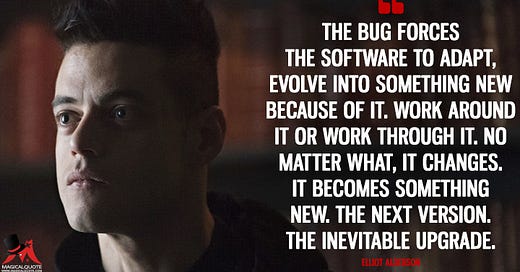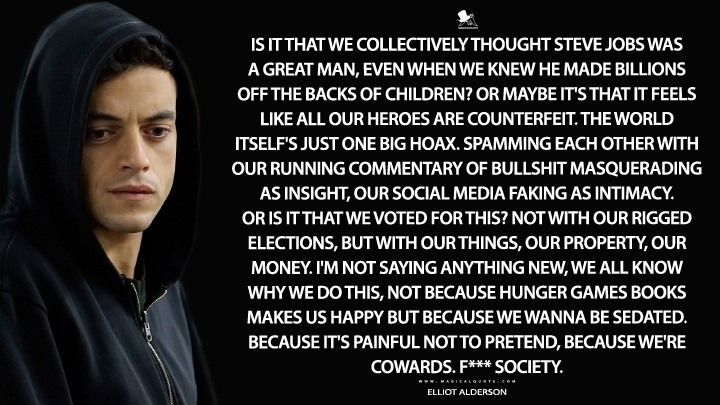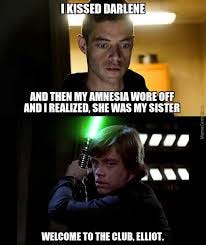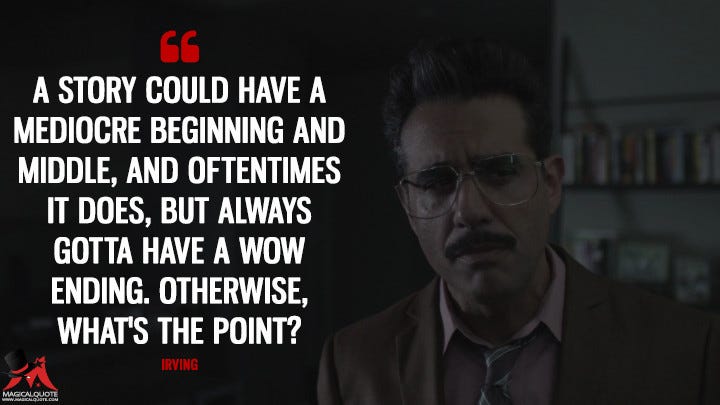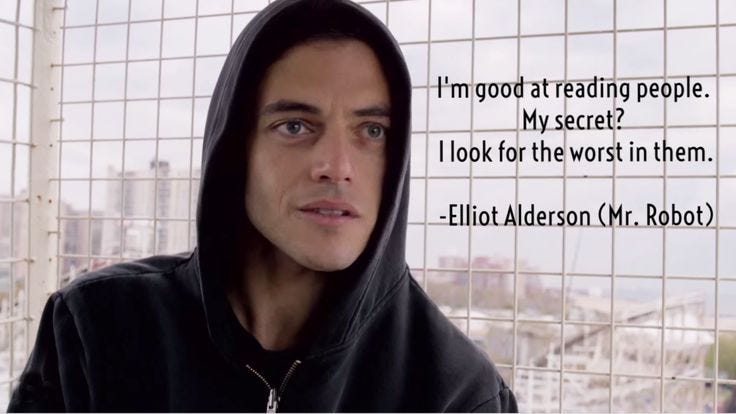Every time I hear someone say, “step foot,” I cringe. You do not step with your hands. You do not step with your kidneys. You do not step with your mouth (at least, not literally). The expression is inherently redundant. Now, you may already be scrolling toward the comments, ready to tell me that, actually, lots of idioms don’t make sense. I disagree, but I take your point. Idioms that don’t make sense to a contemporary reader usually have logical origins—and that’s what really bothers me when I hear “step foot”. It originated from a mistake, one which has been iterated uncountable times across the Internet. I was inclined to let such mistakes go…until I realized that mistakes were becoming our language. As a writer, I can no longer afford to let the mistakes go—the people who make them ought to be held accountable for the language we all use.
For my entire adult life, formal writing has been in decline. Rather than dissect this statement, I will simply link the episode of Michael Lewis’s fantastic podcast where he discusses the removal of the American Heritage Dictionary’s usage panel. In democratizing the arts, the Internet has simultaneously democratized expertise about how words should be used. What began as minor stylistic weaknesses on passionate tumblr essays has become incorrect idiomatic prepositions in mainstream news publications. That I was a good writer has been inconsequential to my ability to get published since I first aspired to write professionally.
When I launched my writing brand, however, in 2021, I made a deliberate decision that I would not be calling out other writers. Perhaps I was swayed by the discourse about gatekeeping (which shaped my own perspective), but I had no desire to tear down other writers for making mistakes—especially since I had witnessed firsthand the purging of editors from the professional class. It has been a very long time since I consistently turned in mistake-free first drafts1, and dunking on my fellow writers seemed unproductive.
Then, in the course of my romantasy journey, I read Powerless. At the time, it was gaining traction among the romantasy community, which is how it landed on my reading list.2 I was, frankly, offended by the comparison of the MLI to Xaden Riorson (of Fourth Wing fame), when the MLI of Powerless had almost no defining traits. More than that, the book had almost no defining traits—it was one of the worst offenders among the romantasy subgenre of Loosely-Rewritten Hunger Games Fanfics. The prose itself was typically weak, notable only for its over-reliance on alliteration (and it takes A LOT of alliteration to make me roll my eyes). The events did not connect to each other, except by dint of the author’s desire to shape the MC in a particular way, seemingly without insight into why people are the way they are. In fact, the author seemed to evince a complete incomprehension of basic cause and effect.3
But what really got me about the book was the Acknowledgements page of the follow-up book (yes, I read the next one—because follow-through). In her acknowledgements, the author says, “The pressure of making it perfect weighed heavily on my shoulders.”
Now. I want to walk this line very carefully, because I am not here to tell a young woman that she doesn’t feel what she feels. But when I talk about the pressure of making a story perfect, I am talking about the research that goes into fact-checking the temperature gradients of a canal (and figuring out whether the canal could drain into rock at its end). I am talking about the obsessive scribbling across whiteboards and documents and wikis that goes into figuring out how to connect my plot (and my world) to a theme. I am talking about calculating the geometry of a sightline, to figure out when my characters would spot a landmark (while journeying along a route I meticulously planned out, on a map I cobbled together).
Nor am I alone in this level of effort—I am not criticizing this author for not working as hard as I do. I know what kind of research goes into The Bleeding Typewriter’s short stories. I know that much of ASOAIF represents (with some measure of accuracy) a real historical period. One of my biggest complaints reading Les Miserables was the minutiae of the Battle of Waterloo (which was especially taxing, as I have a hard time with spatial visualization).
Whatever work the author did in writing Powerless, it seems obvious that she did not do any of this. The fantasy elements in her world exhibit no cohesion. The main character of her book travels across the desert with a dire wound (wrapped, but not treated with anything) and does not die from infection (she also talks to herself, aloud, despite walking a week across desert without water). In fact, she does not seem to leave a trail of either footprints or blood. At one point, the MLI reopens the wound on her thigh with a throwing knife. In the dark.
More than a lack of research, the more complex errors of the book, particularly the psychology of characters and their relationships, reflect a lack of exposure to the world. And that’s not surprising—the author was 18 when she wrote this story. She may not have been paying attention to pop culture when Mr. Robot delivered a twist that relied, like her own book, on some creative memory-editing. She may not have experienced, personally, the impulse to ‘save’ a man, which makes Reylo such an appealing fantasy for many. She may not have dressed her own wounds—not the kind you get in a magical battle royale, but the kind that make you wonder if you shouldn’t go to urgent care. Even in adulthood, I would not expect her to know all of these things—as a writer, you can’t do everything. What galls me is the seeming lack of interest in what she doesn’t know, which seems to be endemic to her chosen genre.
For a first effort, this series is fine—that is, it’s a fine thing to share with your family and friends, and to build off of as you learn and grow as a writer. I do not blame the author for wanting to publish it, nor do I blame the SEO machine for getting it published. No, I blame the adults in her life who read this manuscript and said, “Yes, put it out into the world, as-is.”
It is a simple syllogism: those who seek help believe they need help—they believe they still have something to learn. By handing this author success, the people around her have told this author that she does not still have things to learn, that her writing is adequate. This affirmation will be most disastrous for her, in the ways it hamstrings her craft—but it is also disastrous for every better writer who is still trying to get their work into the world. The publication of this book tells them that their efforts, their research and their contemplation and their craft, does not matter. What matters is their virality, their ability to write to the algorithm. Moreover, this book stands in the way of those better authors, whose works have not caught the collective attention of BookTok. There is already so much noise that writers have to cut through to get their voices heard; this book is just one more piece of noise.
In this climate, I cannot afford to cling to my policy of not calling out other writers. Talking about what is bad is too useful a tool to talk about what is good. Moreover, one of my main goals here is to edify, to encourage. I cannot encourage other writers if I do not allow myself to talk about things that are rightfully discouraging within the writing industry.
If you are a writer who has gained a modicum of success, what are you doing to continue to improve your craft, to push yourself as a writer? What are you doing to support other writers, who have not yet been discovered? What kind of writing advice are you giving? Are you being honest about the state of the industry, the proportion of luck that propelled you to success?
In 2024, I attended a panel at DragonCon, which was a simple introduction to DragonCon’s Writing Track. At one point, the panel was sidetracked into a lengthy discussion of the importance of having a strong opening line. It took only a few moments’ consideration for me to realize this was stupid: in reading books, I rarely remember the opening line, as I am still becoming orientated to the story. In fact, I can recall offhand one half of one opening line of any book I have ever read.4 Yet here were all of these industry professionals, discussing opening lines as if they were the crux of any story.
I didn’t raise my hand, because I had no wish to agitate. But, after the panel was over, I went up to the woman who had said the most on the subject, the director of the Writing Track, and asked her if she had ever put down a book after the opening line. The glare she gave me in return suggested I had made an enemy (so it was a mercy, I suppose, that 2024 was her last year being involved with DragonCon). However, she then proceeded to admit to me that while opening lines do not determine whether readers read books, they are crucial for agents and publishers deciding whether to facilitate the publication of a book. In other words, opening lines do not affect readers, but they sell books.
This was devastating for me to hear—although it matched perfectly with the experience I had querying agents. Besides the effort of writing a book, an author is expected to expend equal effort (if not more) researching publishers, querying agents, and promoting their books. There are no advocates for them in this work: they are required to be editors, researchers, artists, marketing experts, promoters, distributors, and social media managers. I would ask what the agents do, but…they don’t seem to be in great shape, either.
Unfortunately, the only people willing to discuss this aspect of modern writing seem to be unpublished authors (or, occasionally, published authors looking for new agents or going independent). I get it: when you achieve success for a thing you made, it’s hard to acknowledge that maybe your blood and sweat mattered less than luck and algorithms. But this makes the very legitimate complaints of unpublished writers (like myself) sound like the idle bemoanings of those who are just not good enough. There is a complete disconnect between how insiders talk about the industry and what aspirants experience trying to break into the industry.
What finally tipped me towards my current perspective was the feeling of being lied to—because that is how it feels when everyone in an industry is offering advice that is manifestly untrue. And, when it is true, it shows an utter lack of empathy for people who haven’t yet found the success that separates the authors from the writers. I, personally, hope never to be so successful that I forgot how things were5—this feeling, the frustration of trying to find a career path through the tangle of obfuscations and dissonances.
Let’s Not Get Carried Away
After everything I just said, I have a couple of caveats.
One thing I used to see pretty frequently on Twitter (which I almost never see anymore) was people mocking someone they disagreed with for spelling or grammar. This also happens in online writing spaces—and every time it does, I must confess that I feel a stab of vicious glee. Every time, I pop on over to the criticizer’s page to find when they last made an error of spelling or grammar or style. Rarely do I fail to find something. Nobody’s perfect, after all—but I have also noticed that the people most likely to publicly judge the failings of others are people with specks in their own eyes.
Even though I’m ready to start calling out other writers, I’m not interested in doing so for my own petty amusement. I have been a tutor, a mentor, an editor—I have experience reading work that is less polished and offering constructive criticism. That is also my aim here: I want to share examples that are instructive, and I want to hold successful writers accountable. I don’t want to punch down or bully writers who are already working to improve themselves. I don’t want to unnecessarily shame people who make understandable mistakes on the internet. I’ve done that.6
Nor am I the ultimate authority on the things I am criticizing. I’m not even an authority on style anymore—it changes, you know! If you have a different opinion about something I criticize…let’s talk about it! That’s why I have comment buttons in my posts. All of the opinions on my substack are simply my assessments, based on my education, experience, and observation. I believe that I am right, but I cannot promise that I always will be (despite it being the near-obsessive pursuit of my lifetime). What I can promise is that I will hear you out, consider your point(s), and refine my opinion appropriately. I can promise that I will be a better writer for it.
Fin.
Post Script
Because I like to have some balance in critiquing the work of other writers, here are 10 quotes from Powerless/Reckless that I enjoyed solely for their prose…
“It’s been so long since I’ve heard my father’s voice that the soft sound of it threatens to slip from my memory and drift into death with him.”
“He laughs again, a bright and contagious sound…”
“…and stars splatter the sky…”
“I keep myself busy all day in the hopes that the nightmares are too exhausted to chase me from my sleep at night.”
“The stars are flirtatious things, always winking down in the darkness.”
“Dawn dances along the horizon, creeping up on the clouds to cast them in faint, golden light.”
“Pale silver rays slip between the cracks of buildings and banners, like frail fingers desperate to claw through anything in their way.”
“…a mosaic of a man—all sharp edges and shattered pieces.”
“My rebuttal is quiet, ragged, as though it’s been ripped from the depths of my mind.”
“I hate the way he’s watching me, like he’s ready to collect the pieces when I inevitably break.”
In high school, I never edited my own work—because I didn’t make mistakes when I wrote. Not sleeping in college swiftly put paid to any expectation I had that I would never need to edit my own writing.
My romantasy reading list was entirely sourced from a personal friend and the romantasy subreddit.
I am generally loathe to criticize something without providing evidence—but this post is already too long, I think, for me to parse and include that evidence. I will simply say that I reviewed my kindle notes and highlights (which are detailed) before writing this. Receipts may be furnished upon request.
“Scarlett O’Hara was not pretty….” Gone with the Wind.
My plan—and you can certainly hold me to it—if I get published or become otherwise established, is to spend at least 10% of my Creative Time (time I spend writing, editing, promoting my writing, and researching) helping other writers, who are not yet recognized for their talents.
I’ve been in one Internet argument in my life. I got rather heated rather quickly on The Witcher subreddit…and I have not picked a fight since—not because I was cowed, but because I was wrong. Sure, my read of the series was valid, but it was not justification to condescend to a stranger about how they engaged with the text.


